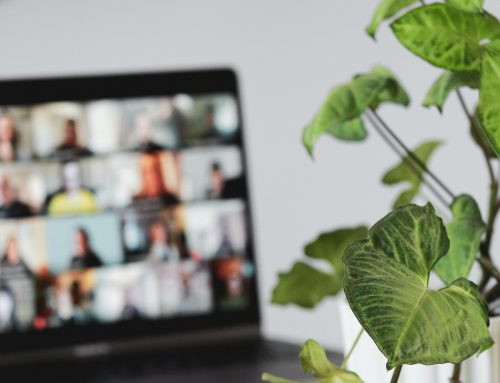Cyber attacks are becoming more common every year, with hackers around the world trying to gain access to company and individual information. Phishing attacks (deceiving people to disclose sensitive information) increased by 48% in the first half of 2022 alone, and these attacks are still on the rise. Several factors such as increased remote working and cloud storage have contributed to the rise in cyber attacks, as untrained individuals give criminals more opportunities to successfully breach their data security.
If you don’t work in cyber security, you most likely wouldn’t know where to start with things like transport layer security, advanced encryption standard and penetration tests. Leave that stuff to the experts, but remember that it’s important to recap on the basics regularly. Here are six ways you can improve data security, both in your personal life and in your organisation.
Your password is too simple – make it more complicated!
You don’t have to give a criminal your password for them to get into your account. Like a Hollywood movie, intelligent cyber criminals have many ways to crack your password. The weaker your password, the faster and more likely they can crack it. Having a more complicated password can make a difference of seconds, hours, or even years!
This doesn’t mean your password has to be a string of 30 random characters and symbols (though that would definitely improve your password security). But you should make a conscious effort to make passwords that are at least longer than 8 characters, with letters, numbers, and symbols. Update it regularly as well, and use two-factor authentication if you can. Yes, it’s annoying having to jump through more hoops just to access something, but it’s a small price to pay for significantly better data security.
Be careful when transferring data!
One of our employees had an issue with a bank the other day. They submitted a new application to deposit funds, which the bank would review and send back to them as part of the setup. Unfortunately, the bank had a bad habit of reviewing and sending back multiple applications in a short space of time. As a result, our employee ended up receiving someone else’s application!
It’s surprisingly easy to make a mistake like this. The risk increases with remote working as data transfers between home and office become more common. Safeguards should be in place before committing any data transfer. Is transferring the data essential to completing a task? Is the connection secure? Is the recipient’s device secure to stop them from accidentally sending the file elsewhere? Is their device protected with antivirus software?
Always double-check data and recipients before sending anything! For particularly sensitive information, only send it via secure and encrypted means.
Data security 101: if in doubt, don’t click or download!
Always download files directly from the source if you can help it. Even trusted email addresses from family, friends or colleagues can end up being malicious if their email account has been hacked. You may have even received company emails in the past where the branding is perfect, but the sender’s email address is something like “jim@00saf.bieusa.com”. Always check the sender’s email address before clicking on anything! Antivirus software can also be used to prevent you from clicking on malicious links, and can be used to scan downloaded files for malware.
Keep it private when in public!
Are criminals getting smarter, or are you just too lax? Some people are checking their bank accounts in public, typing their PIN code for all to see!
When you’ve got earphones plugged in or headphones on doing the daily commute (probably a bit sleep deprived as well), it’s easier to become less vigilant when it comes to data security. How often have you unconsciously accessed sensitive information in public without thinking about who’s around you?
This doesn’t even have to involve people looking over your shoulder. Using public Wi-Fi is a bad call as well, as the general lack of security and encryption leaves your devices vulnerable to things such as man-in-the-middle attacks. Mobile data has security measures in place to protect user devices, but if you’re having to handle gigabytes of data it can quickly run out for most people.
Your phone apps could be compromising your data security!
“I downloaded an app from the Apple/Google Play store that allows me to view PDF files on my phone. It’s from the official store, so it must be safe to use!”
Wrong!
Just because an app is on the Apple or Google Play stores doesn’t mean it’s totally legitimate. There have been several instances in the past of “approved” apps being used to access user data. This ranges from stealing Facebook login information, installing adware on your phone, and even draining money from bank accounts and committing identity fraud!
Scary stuff. So what can you do?
Embrace minimalism. Go through every app on your phone. If you haven’t used an app for a while, delete it. If you do use an app, check the permissions the app has – it could have access to your camera, microphone, files, contacts, etc. Click HERE to find out how to check app permissions on an Android phone. Click HERE to find out how to check app permissions on an iOS device.
Consider using a VPN service
A VPN, or virtual private network, helps to protect your privacy by hiding your identify when accessing the internet.
On the surface this sounds a bit advanced, but using a VPN is as simple as downloading a VPN app from a reputable supplier and turning it on when you are using mobile data or public Wi-Fi. VPNs protect your privacy in two principle ways:
- By hiding your IP address. Your IP address is like a digital fingerprint, revealing your geographic location. Websites, advertisers, and other entities use this data to monitor your browsing habits and collect your personal data. A VPN prevents this from happening.
- By encrypting your internet connection. As mentioned above, using public Wi-Fi is always risky as hackers and cybercriminals may be lurking on the same network – it’s like funnelling your passwords, financial information, and other sensitive data through a see-through tube! A VPN encrypts your internet connection and prevents anyone else from seeing what you are doing.
Incorporating a VPN into your online security stack can provide peace of mind and a more secure internet experience, whether you are a casual internet browser or a professional handling sensitive information.
For further information, the ICO has a wealth of information individuals can use to improve their cyber security.






